

|
 |
Untamed (The) AKA La región salvaje (Blu-ray)
[Blu-ray]
Blu-ray B - United Kingdom - Arrow Films Review written by and copyright: Paul Lewis (27th October 2017). |
|
The Film
 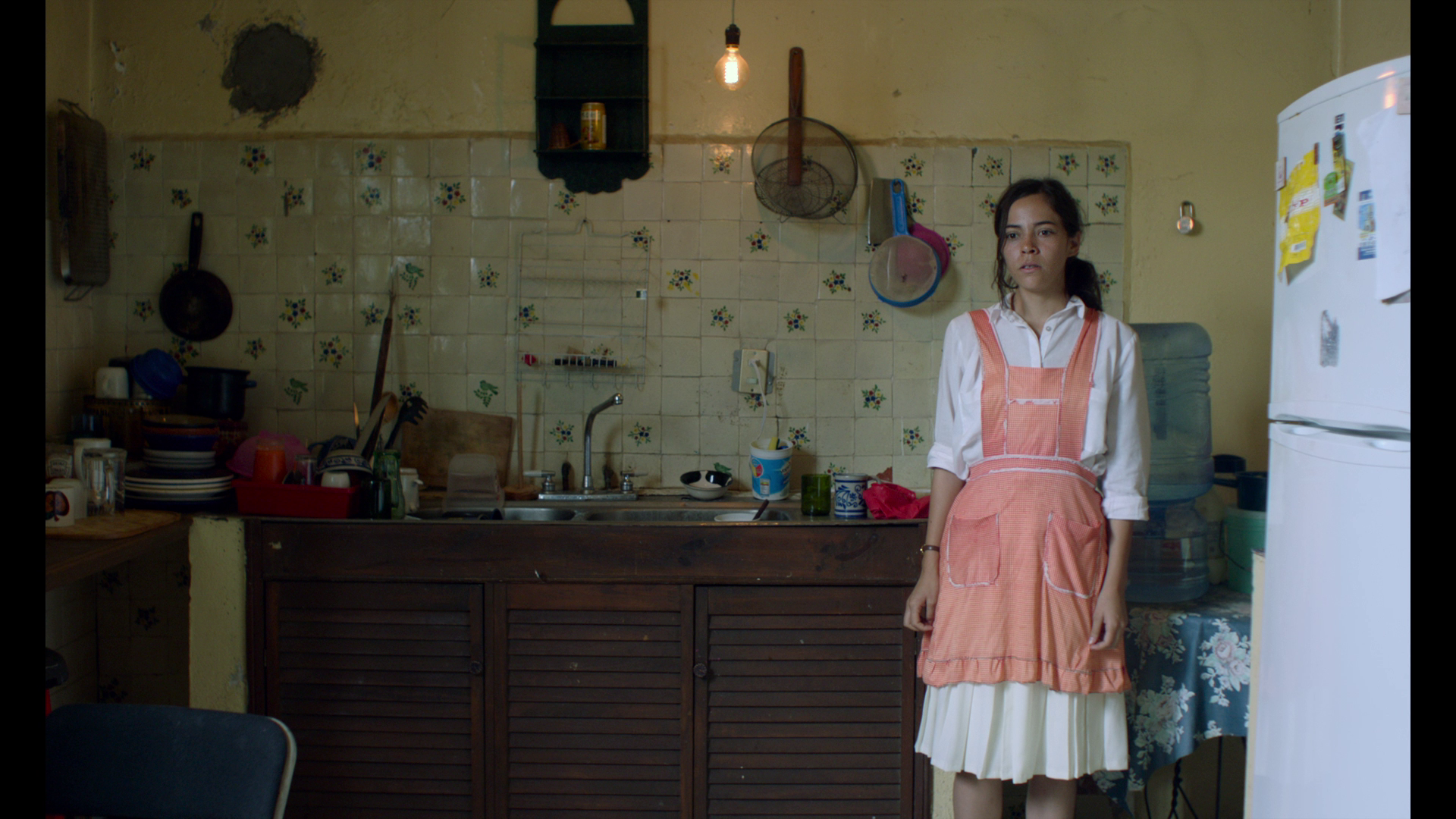 La región salvaje AKA La región salvaje AKA
The Untamed (Amat Escalante, 2016) Married couple Angel (Jesus Meza), a surveyor, and his sexually-frustrated wife Alejandra (Ale, played by Ruth Ramos), who is employed in the sweet factory owned by Angel’s parents, have two young sons. However, their marriage is a sham: Angel is engaged in an intensely sexual relationship with Ale’s brother Fabian (Eden Villaviciencio), a male nurse. Unaware of her husband’s affair with her brother, Ale is concerned about her husband’s relationship with Fabian owing to the intense homophobia Angel displays towards Fabian, who he refers to as ‘that faggot’. Fabian meets a young woman named Veronica (Simone Bucio), however, and the pair soon become very close. Angel is ridden with jealousy, and in public acts even more aggressively towards Fabian. When Fabian is discovered naked in a field, having suffered a head injury which has put him into a coma, Ale suspects Angel has something to do with it. She divulges her suspicions to the police, who find other witnesses who claim to have seen Angel and Fabian arguing in the parking lot of the hospital. Angel is taken into custody by the police. Searching through Fabian’s home for his birth certificate, Ale discovers her brother’s mobile telephone. She turns it on and reads text messages to Fabian from Ale’s husband Angel; they explain in graphic detail the sexual relationship between the two men. Meanwhile, Veronica takes Ale to the nearby forest, where a middle-aged married couple keep in a log cabin an alien which is capable of giving intense sexual pleasure – but also capable of killing its ‘lovers’. Ale experiences this creature’s ‘talents’ and becomes hooked on its contact. She also comes to realise that this creature was responsible for her brother’s life-threatening coma, Fabian having been introduced to the alien by Veronica. 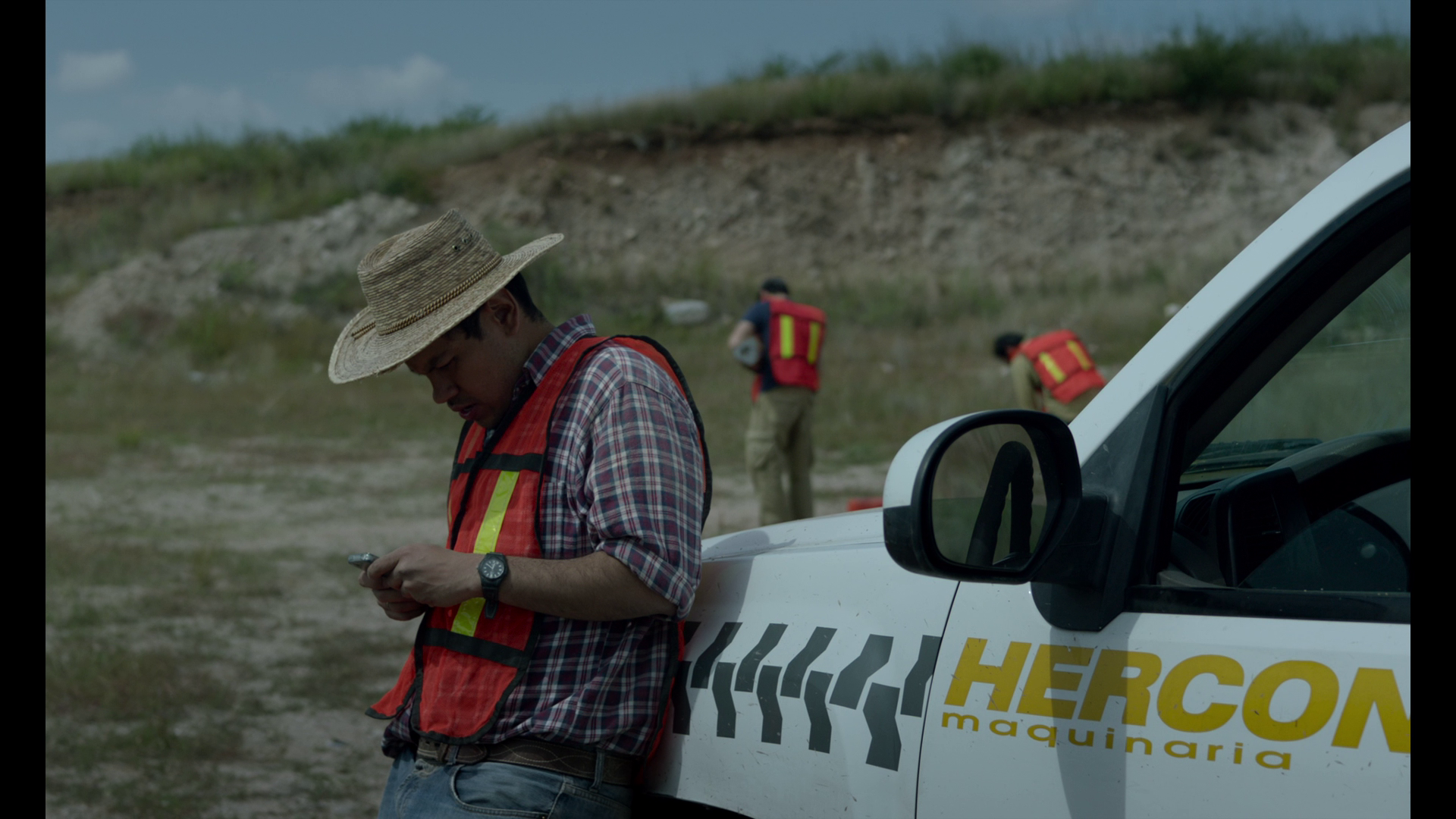 Angel is eventually released from police custody, owing largely to the influence of his wealthy parents; however, Angel’s mother and father chastise him for the shame he has brought to their family. When Angel decides to pay a visit to Ale, desperate to work his way back into the lives of his family, Ale sees the alien as an opportunity to dispose of her ‘problems’. Angel is eventually released from police custody, owing largely to the influence of his wealthy parents; however, Angel’s mother and father chastise him for the shame he has brought to their family. When Angel decides to pay a visit to Ale, desperate to work his way back into the lives of his family, Ale sees the alien as an opportunity to dispose of her ‘problems’.
Mexican director Amat Escalante’s previous films, from Sangre (2005) and Los bastardos (2008) to Heli (2013, the Network Blu-ray release of which we reviewed here), evidence a fascination with the paradigms of cinematic realism, including the use of non-professional actors, the absence of non-diegetic music and the employment of handheld photography. In these three pictures, Escalante employed these techniques in order to tell relatively bleak, low-key stories; for this reason, his films are often cited as examples of ‘social realism’. In particular, Escalante’s films may be considered part of the nuevo cine Mexicano (New Mexican Cinema/Mexican New Wave), which has existed since the late-1960s but gained added impetus during the early 2000s, with films such as Alfonso Cuarón’s Y tu mamá también (And Your Mother Too, 2001) and Alejandro González Iñárritu’s Amores perros (2000). Escalante’s mentor Carlos Reygadas, who produced Escalante’s first feature film, Sangre, is a key figure of the contemporary nuevo cinema Mexicano, having directed Japon (Japan, 2002) and Batalla en el cielo (Battle in Heaven, 2005). In Los bastardos, the cathartic violence enacted at the film’s climax clashes with the social realism and documentary stylings of the film’s prior sequences (rendered in Haneke-esque long takes). With The Untamed, Escalante ventures into the realms of the fantastical. In previous interviews, Escalante has professed a love of horror and gore cinema, especially the films of Dario Argento (cited in Christie, 2014: np). This has been a subtle undercurrent in Escalante’s previous films – for example, via the impactful torture sequence in Heli, in which Escalante married his fascination with cinematic gore with the aesthetics of the brutal home-made death/torture footage associated with the Mexican cartels (such as Los Zetas, the Sinaloa cartel, and the Knights Templar). Interviewed about that picture, Escalante suggested that Heli was as much inspired by the work of genre filmmakers like Sergio Leone and Argento as it is by ‘the current situation in Mexico […] I love gore films, Dario Argento, Stanley Kubrick, strong films. The drug stuff is just something I know I can make a story with’ (Escalante, quoted in ibid.). 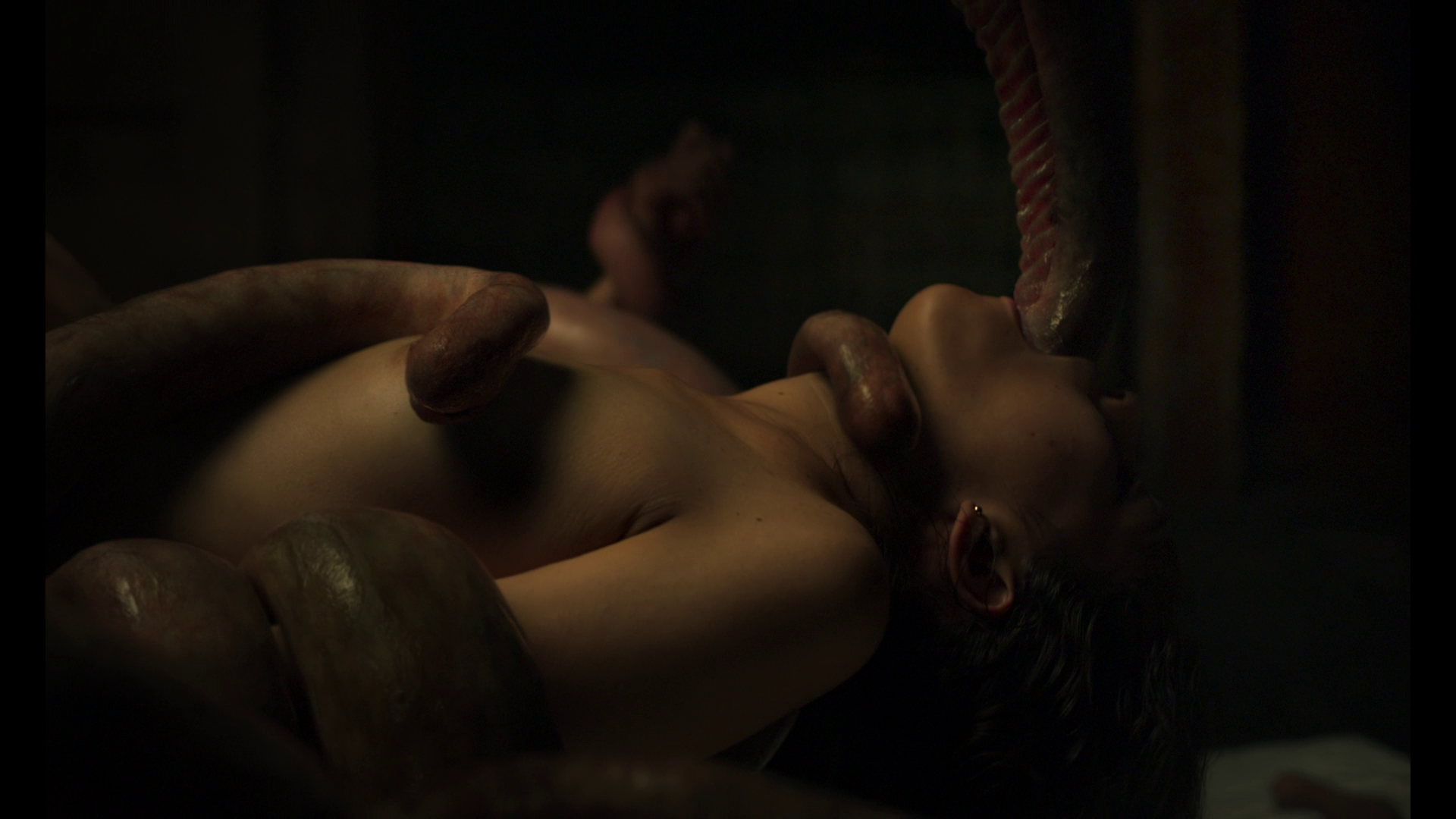 The Untamed marries a more overtly fantastical premise (aliens who have landed on the Earth and are capable of both delivering – and presumably taking – intense sexual pleasure from humans and killing the people with whom they come into contact) with the claustrophobic depiction of family life and domestic problems that is a characteristic of Escalante’s earlier pictures. In The Untamed, Escalante occasionally stops the narrative for shots of the sky or of the forest, accompanied by eerie non-diegetic music, that suggest a form of Lovecraftian cosmic terror. The premise of the film – human sexual engagement with aliens, resulting in death which the audience may infer takes place during the throes of sexual pleasure – has a ring of Georges Bataille to it (the proximity of sex and death to one another) and bears some similarities with Jonathan Glazer’s recent film adaptation of Michael Faber’s novel Under the Skin (2013) and Andrzej Zulawski’s ‘video nasty’ Possession (1981). Possession is an acknowledged influence on The Untamed, the similarities foregrounded in both films’ use of shock sequences in which their lead actresses are shown engaged in a sexual tryst with an octopus-like creature. To this end, The Untamed features an unsettling sequence in which Ale is introduced to the alien by the Vegas, the couple in whose barn it lives. The couple leave Ale on the mattress in the barn, and the alien approaches, slithering out of the darkness. It reaches out with penis-like tentacles and slowly touches the mattress, working its way towards Ale. Later, Ale is shown being fucked by the creature, a medium shot taken from the side displaying Ale’s naked body, the creature’s tentacles wrapped around her, and one of the tentacles thrusting in and out of Ale’s mouth in a disquieting parody of fellatio. A cut to a high-angle shot of Ale’s body, taken almost from her point-of-view, shows her legs spread as another tentacle penetrates her vaginally. This is the only sequence in which the alien is shown fucking its human lovers/victims; other sequences elide a direct depiction of these activities, becoming all the more disturbing through their lack of visual evidence. (We might wonder how the alien fucks Fabian and Angel in such a manner that leads to the deaths of both characters, for example.) The creature provides its ‘lovers’ with intense, incomparable sexual pleasure: ‘It’s the purest sensation I’ve ever felt’, Ale notes. However, with this comes the possibility of rejection – of the worst kind, resulting in death: ‘Someday it might get tired of you’, Veronica asserts, ‘Then you’ll need to find somebody else’. The Untamed marries a more overtly fantastical premise (aliens who have landed on the Earth and are capable of both delivering – and presumably taking – intense sexual pleasure from humans and killing the people with whom they come into contact) with the claustrophobic depiction of family life and domestic problems that is a characteristic of Escalante’s earlier pictures. In The Untamed, Escalante occasionally stops the narrative for shots of the sky or of the forest, accompanied by eerie non-diegetic music, that suggest a form of Lovecraftian cosmic terror. The premise of the film – human sexual engagement with aliens, resulting in death which the audience may infer takes place during the throes of sexual pleasure – has a ring of Georges Bataille to it (the proximity of sex and death to one another) and bears some similarities with Jonathan Glazer’s recent film adaptation of Michael Faber’s novel Under the Skin (2013) and Andrzej Zulawski’s ‘video nasty’ Possession (1981). Possession is an acknowledged influence on The Untamed, the similarities foregrounded in both films’ use of shock sequences in which their lead actresses are shown engaged in a sexual tryst with an octopus-like creature. To this end, The Untamed features an unsettling sequence in which Ale is introduced to the alien by the Vegas, the couple in whose barn it lives. The couple leave Ale on the mattress in the barn, and the alien approaches, slithering out of the darkness. It reaches out with penis-like tentacles and slowly touches the mattress, working its way towards Ale. Later, Ale is shown being fucked by the creature, a medium shot taken from the side displaying Ale’s naked body, the creature’s tentacles wrapped around her, and one of the tentacles thrusting in and out of Ale’s mouth in a disquieting parody of fellatio. A cut to a high-angle shot of Ale’s body, taken almost from her point-of-view, shows her legs spread as another tentacle penetrates her vaginally. This is the only sequence in which the alien is shown fucking its human lovers/victims; other sequences elide a direct depiction of these activities, becoming all the more disturbing through their lack of visual evidence. (We might wonder how the alien fucks Fabian and Angel in such a manner that leads to the deaths of both characters, for example.) The creature provides its ‘lovers’ with intense, incomparable sexual pleasure: ‘It’s the purest sensation I’ve ever felt’, Ale notes. However, with this comes the possibility of rejection – of the worst kind, resulting in death: ‘Someday it might get tired of you’, Veronica asserts, ‘Then you’ll need to find somebody else’.
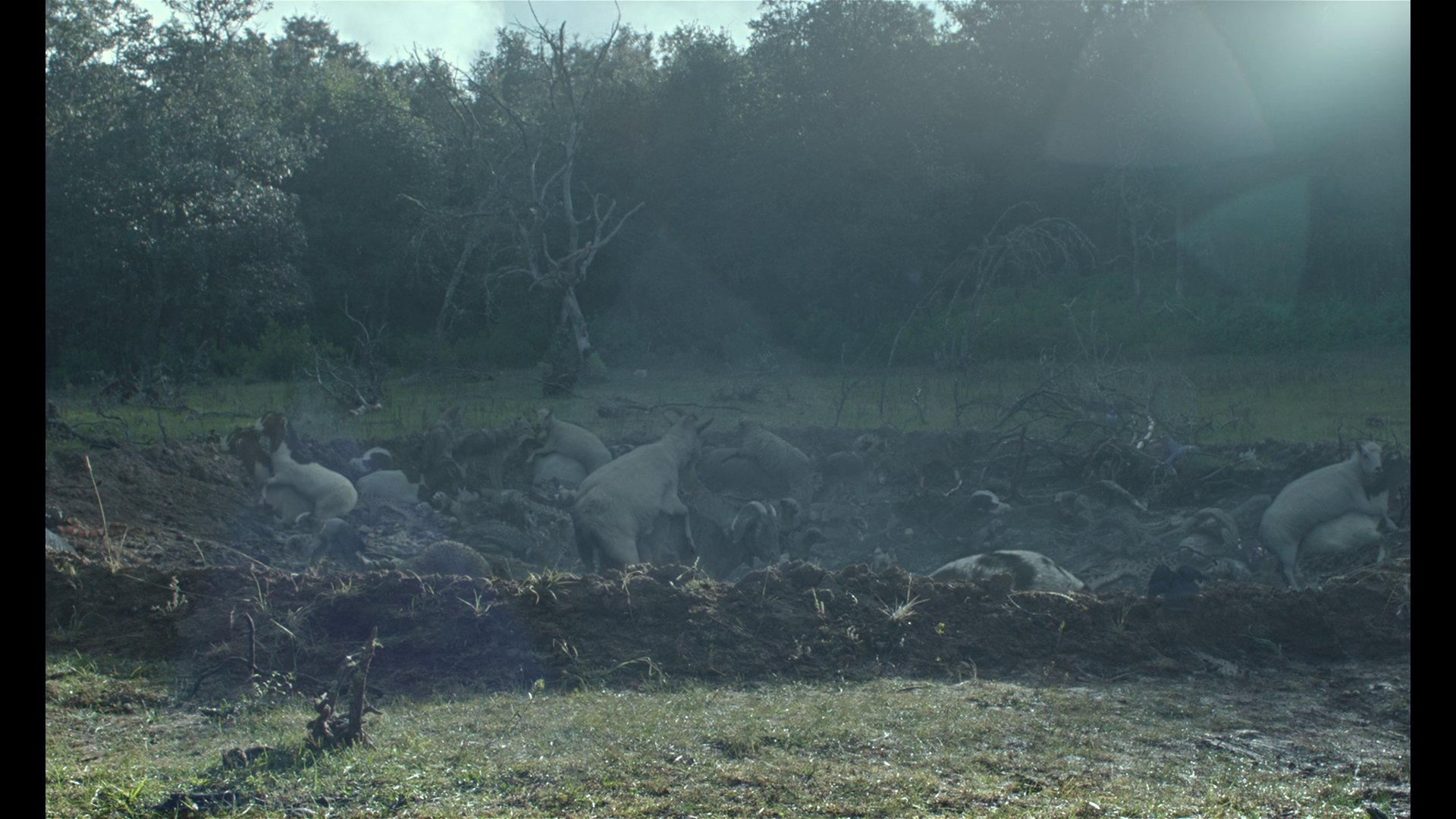 The alien’s intense omnisexuality is juxtaposed with the more rigid definitions of sexuality imposed on the human characters. Angel is confused about his sexuality precisely because it doesn’t fit into clearly-defined parameters: he is married, but also regularly fucks his wife’s brother, Fabian. (In the scene in which Angel and Ale are introduced, they are shown in bed, Ale woken from her sleep as Angel – unseen by the camera – penetrates her from behind; she derives no sexual pleasure from this encounter and is later shown enacting her sexual frustration via the act of masturbating in the shower, whilst Angel’s homosexuality is suggested by the fact that he chooses to fuck his wife from behind.) Angel’s communications with Fabian are filled with a mixture of sexual desire and homophobic rage: when Ale discovers Fabian’s mobile telephone and reads the text messages Angel has sent to her brother, she sees one in which Angel threatens to assault Fabian brutally before declaring simply that ‘I’m horny’. Angel and the alien are both connected by their ‘deviant’ sexuality, and both are implicated in the assault upon Fabian: for much of the film’s running time, ambiguity is sustained as to whether Fabian’s condition is owing to a fit of sexual jealousy on the part of Angel or to the alien. In the film, sex is connected to a loss of reason. ‘At first you will think you’re hallucinating’, Sr Vegas warns Ale in relation to her first encounter with the alien, ‘This will probably make your brain and your body disconnect for a moment. You might lose your will and your reason’. He tells Ale about the discovery of the alien: an object ‘hit the earth and left a crater. Then the animals started arriving. They are much more in touch with their immediate needs, with their instincts. What’s there in the cabin is our primitive side, in its most basic and purest state, materialised. It’s never going to disappear. It’s only going to perfect itself’. The alien’s intense omnisexuality is juxtaposed with the more rigid definitions of sexuality imposed on the human characters. Angel is confused about his sexuality precisely because it doesn’t fit into clearly-defined parameters: he is married, but also regularly fucks his wife’s brother, Fabian. (In the scene in which Angel and Ale are introduced, they are shown in bed, Ale woken from her sleep as Angel – unseen by the camera – penetrates her from behind; she derives no sexual pleasure from this encounter and is later shown enacting her sexual frustration via the act of masturbating in the shower, whilst Angel’s homosexuality is suggested by the fact that he chooses to fuck his wife from behind.) Angel’s communications with Fabian are filled with a mixture of sexual desire and homophobic rage: when Ale discovers Fabian’s mobile telephone and reads the text messages Angel has sent to her brother, she sees one in which Angel threatens to assault Fabian brutally before declaring simply that ‘I’m horny’. Angel and the alien are both connected by their ‘deviant’ sexuality, and both are implicated in the assault upon Fabian: for much of the film’s running time, ambiguity is sustained as to whether Fabian’s condition is owing to a fit of sexual jealousy on the part of Angel or to the alien. In the film, sex is connected to a loss of reason. ‘At first you will think you’re hallucinating’, Sr Vegas warns Ale in relation to her first encounter with the alien, ‘This will probably make your brain and your body disconnect for a moment. You might lose your will and your reason’. He tells Ale about the discovery of the alien: an object ‘hit the earth and left a crater. Then the animals started arriving. They are much more in touch with their immediate needs, with their instincts. What’s there in the cabin is our primitive side, in its most basic and purest state, materialised. It’s never going to disappear. It’s only going to perfect itself’.
More disturbingly, the proximity of the alien to Ale and Angel’s children may leave the audience squirming in their seats: when Ale first ‘visits’ the alien, she leaves the children in the care of Veronica, an action which may destabilise the viewer’s sympathy with Ale. Later, Ale is shown bringing the children to the barn; they play outside whilst, in the barn, she allows the alien to fuck her (her gasps of pleasure, and perhaps pain, are heard on the soundtrack). At one point, Veronica is in charge of the children but picks up a middle-aged man in a roadside café. Veronica is shown fucking this man in a motel room; her lack of enthusiasm for this act, demonstrated through her passivity, causes the man to question Veronica’s motives, but at this point the film has made it clear that for those who have been in ‘contact’ with the alien, sexual activity with another human is no substitute. One may wonder what Veronica has done with the children; this question isn’t answered directly, and when Ale later discovers Veronica’s corpse in the barn (it’s suggested her sexually frustrating encounter with the middle-aged man has resulted in Veronica making a decision to return to the alien, no matter how dangerous this may be), the viewer might fear the worst. However, at the very end of the picture Ale is shown collecting her children from school. The film ends abruptly, the audience left wondering whether or not Ale will be drawn back to the alien – and what this may mean for her two sons. 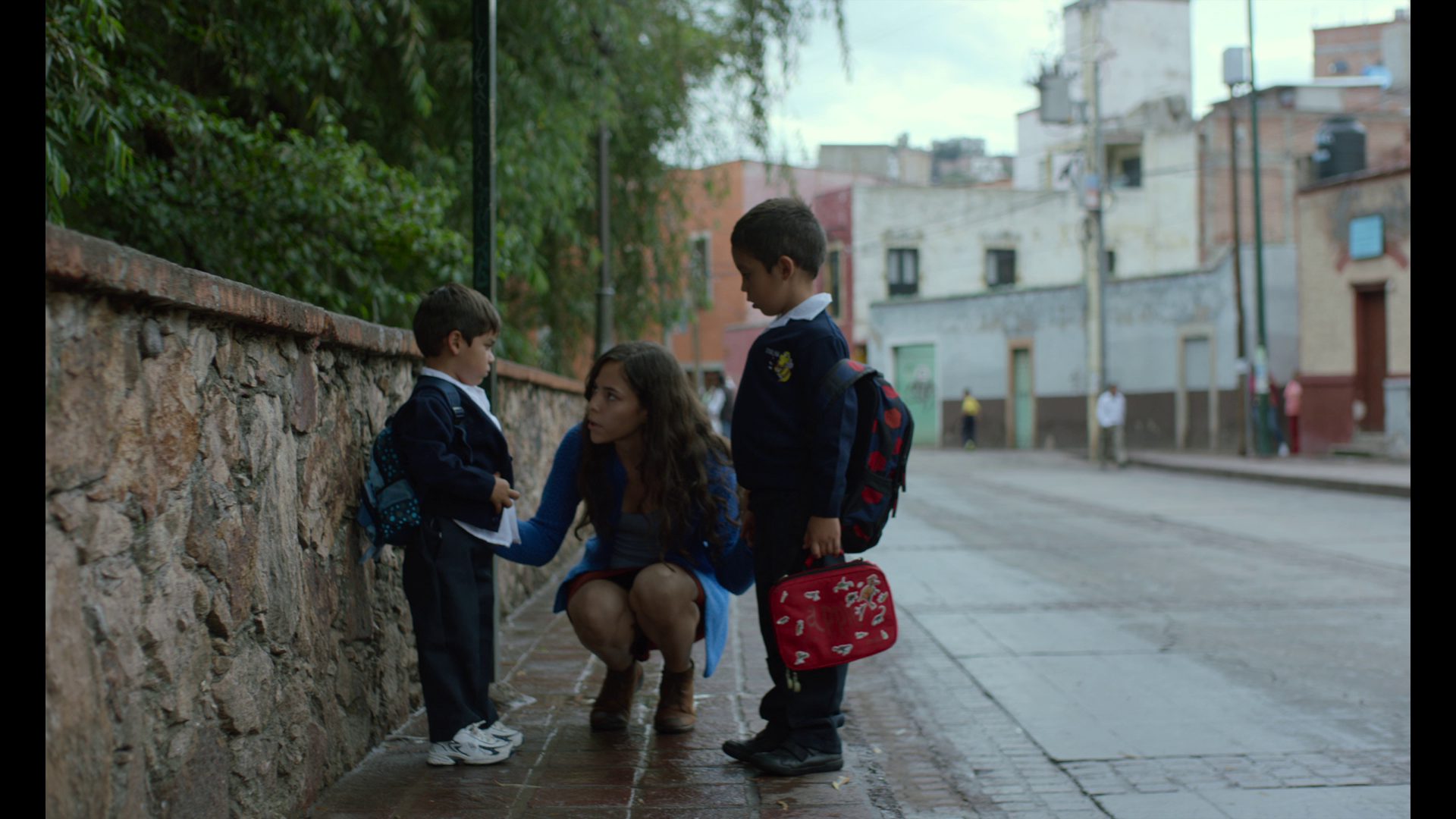 In fact, the relationships between parents and their children becomes a key underlying theme in the film. Ale resents Angel’s mother’s role in the lives of the couple’s young sons, despite the fact that Angel’s family have given Ale employment in the sweet factory they own. When Angel’s mother discovers that Angel has been imprisoned for the assault on Fabian owing to information given to the police by Ale (wrongly, it turns out), Angel’s mother ‘abducts’ the two boys. Ale arrives at the school to collect her sons but is told that Angel’s mother has already collected them. Ale visits Angel’s parents’ house and demands that Angel’s mother release the two boy into her (Ale’s) care. Angel’s mother refuses, suggesting that Ale’s presentation of false information to the police, which has led to Angel being accused of the assault on Fabian, suggests that Ale is not a responsible parent. Ale reacts angrily, smashing one of the windows of the house with a large rock. She is then shown walking home with her sons, who ask whether it’s true that Fabian was ‘punished’ by God for his sins (his homosexuality). Later, at night, one of the children suffers night terrors and wakes screaming for his father. Ale again reacts angrily, slapping the boy viciously before catching herself and apologising to him as he sobs intensely. This gesture is mirrored later in the film when Angel has been released from prison owing to the intervention of his wealthy parents. Angel returns with his parents to their home, where they have kept his room. He holds a revolver to his head, toying with the idea of suicide, but is interrupted when his father knocks on Angel’s bedroom door. Angel hides the revolver and opens the door, and Angel’s father immediately strikes Angel in the face (for bringing shame upon the family) before holding his son in a bear hug whilst Angel weeps uncontrollably. As Philip Larkin famously wrote, ‘They fuck you up, your mum and dad / They may not mean to, but they do / They fill you with the faults they had / And add some extra, just for you [….] Man hands on misery to man / It deepens like a coastal shelf / Get out as early as you can / And don’t have any kids yourself’. In fact, the relationships between parents and their children becomes a key underlying theme in the film. Ale resents Angel’s mother’s role in the lives of the couple’s young sons, despite the fact that Angel’s family have given Ale employment in the sweet factory they own. When Angel’s mother discovers that Angel has been imprisoned for the assault on Fabian owing to information given to the police by Ale (wrongly, it turns out), Angel’s mother ‘abducts’ the two boys. Ale arrives at the school to collect her sons but is told that Angel’s mother has already collected them. Ale visits Angel’s parents’ house and demands that Angel’s mother release the two boy into her (Ale’s) care. Angel’s mother refuses, suggesting that Ale’s presentation of false information to the police, which has led to Angel being accused of the assault on Fabian, suggests that Ale is not a responsible parent. Ale reacts angrily, smashing one of the windows of the house with a large rock. She is then shown walking home with her sons, who ask whether it’s true that Fabian was ‘punished’ by God for his sins (his homosexuality). Later, at night, one of the children suffers night terrors and wakes screaming for his father. Ale again reacts angrily, slapping the boy viciously before catching herself and apologising to him as he sobs intensely. This gesture is mirrored later in the film when Angel has been released from prison owing to the intervention of his wealthy parents. Angel returns with his parents to their home, where they have kept his room. He holds a revolver to his head, toying with the idea of suicide, but is interrupted when his father knocks on Angel’s bedroom door. Angel hides the revolver and opens the door, and Angel’s father immediately strikes Angel in the face (for bringing shame upon the family) before holding his son in a bear hug whilst Angel weeps uncontrollably. As Philip Larkin famously wrote, ‘They fuck you up, your mum and dad / They may not mean to, but they do / They fill you with the faults they had / And add some extra, just for you [….] Man hands on misery to man / It deepens like a coastal shelf / Get out as early as you can / And don’t have any kids yourself’.
 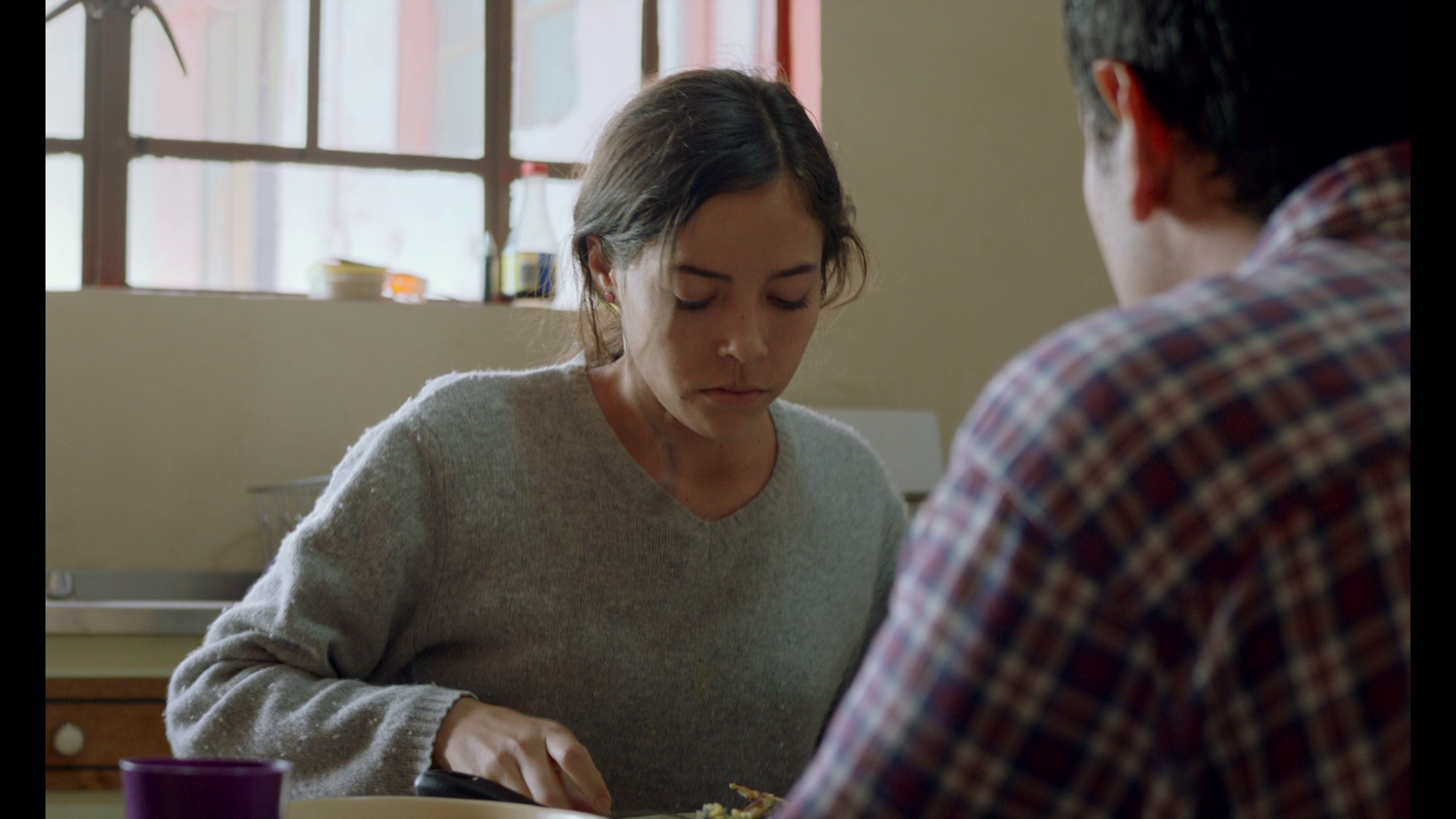 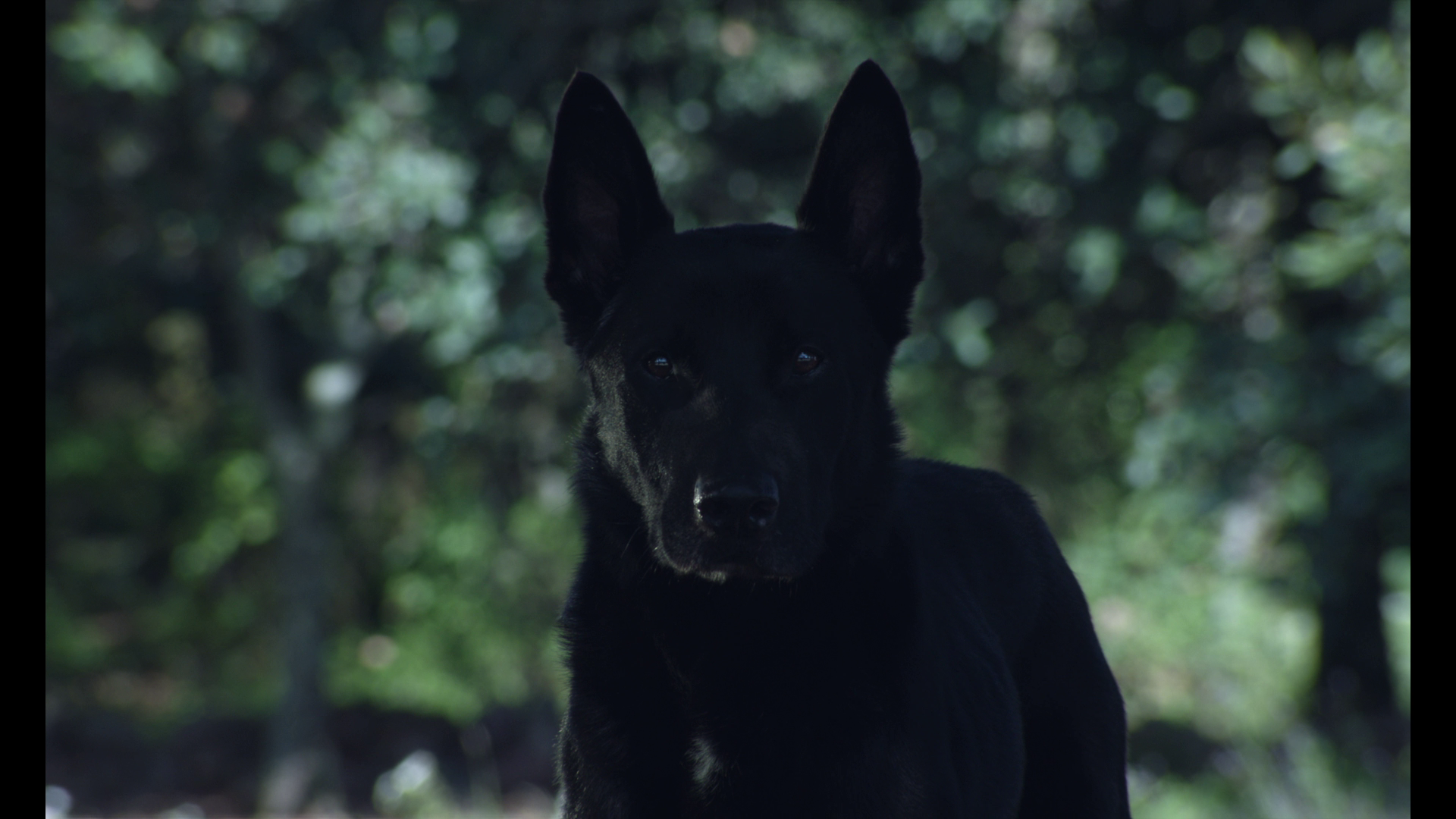
Video
 Uncut and with a running time of 98:17, the film is presented in 1080p, using the AVC codec, and the presentation uses the film’s intended aspect ratio of 1.66:1. This Blu-ray presentation is a digital clone of a film shot digitally, on the Arri Alexa Mini. An excellent level of fine detail is present throughout the picture, and contrast levels are very good for a film shot digitally: midtones have a strong sense of definition to them, and highlights are even and balanced though shadow detail is sometimes ‘crushed’ – which is most likely an artistic decision made in the film’s photography to counteract the flattened dynamic range of digital sensors as compared with traditional film processes. Colours are reproduced very well too. Uncut and with a running time of 98:17, the film is presented in 1080p, using the AVC codec, and the presentation uses the film’s intended aspect ratio of 1.66:1. This Blu-ray presentation is a digital clone of a film shot digitally, on the Arri Alexa Mini. An excellent level of fine detail is present throughout the picture, and contrast levels are very good for a film shot digitally: midtones have a strong sense of definition to them, and highlights are even and balanced though shadow detail is sometimes ‘crushed’ – which is most likely an artistic decision made in the film’s photography to counteract the flattened dynamic range of digital sensors as compared with traditional film processes. Colours are reproduced very well too.
As a digital clone of a digitally-shot feature, this Blu-ray offers a very pleasing presentation of the film. 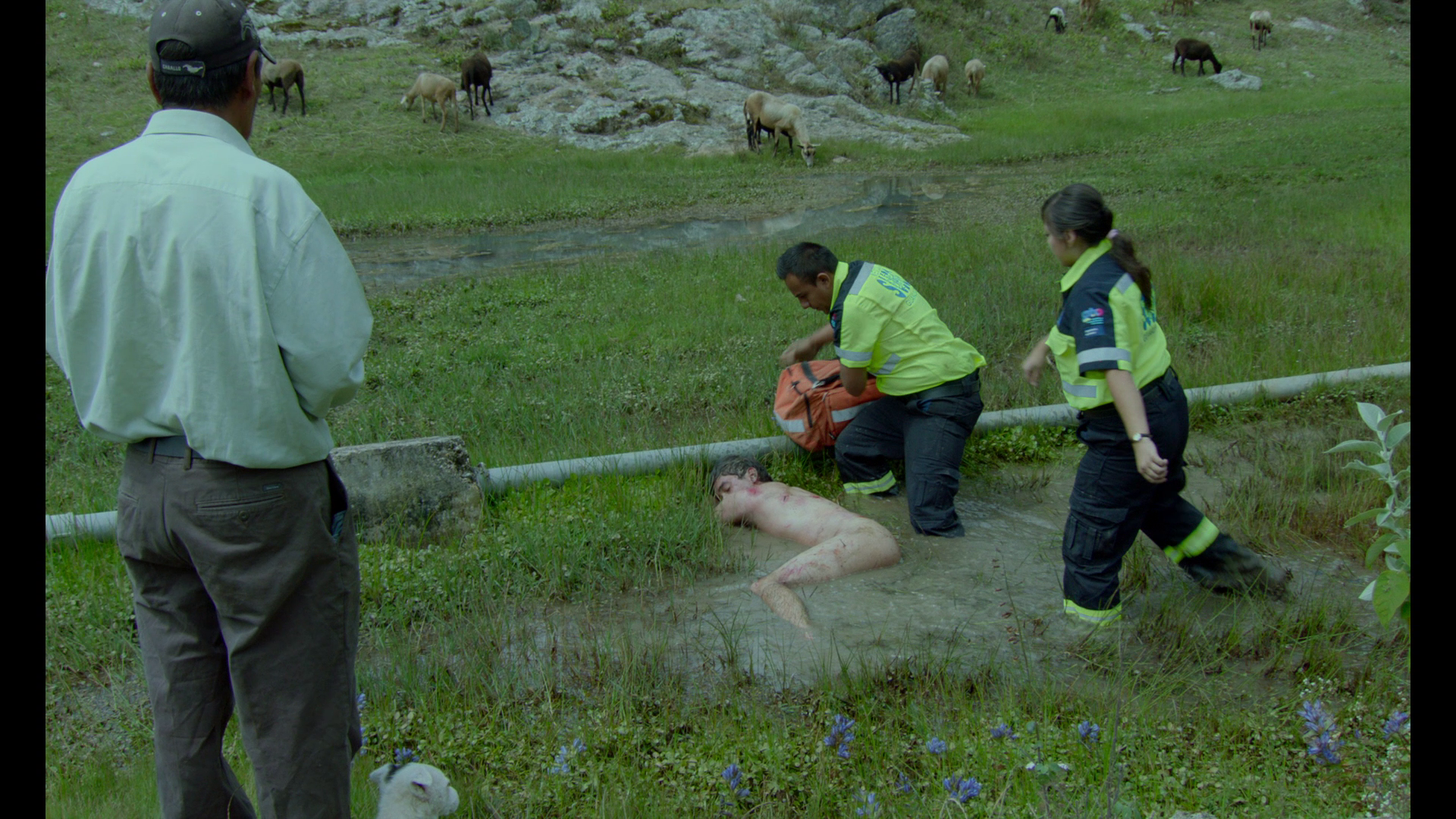 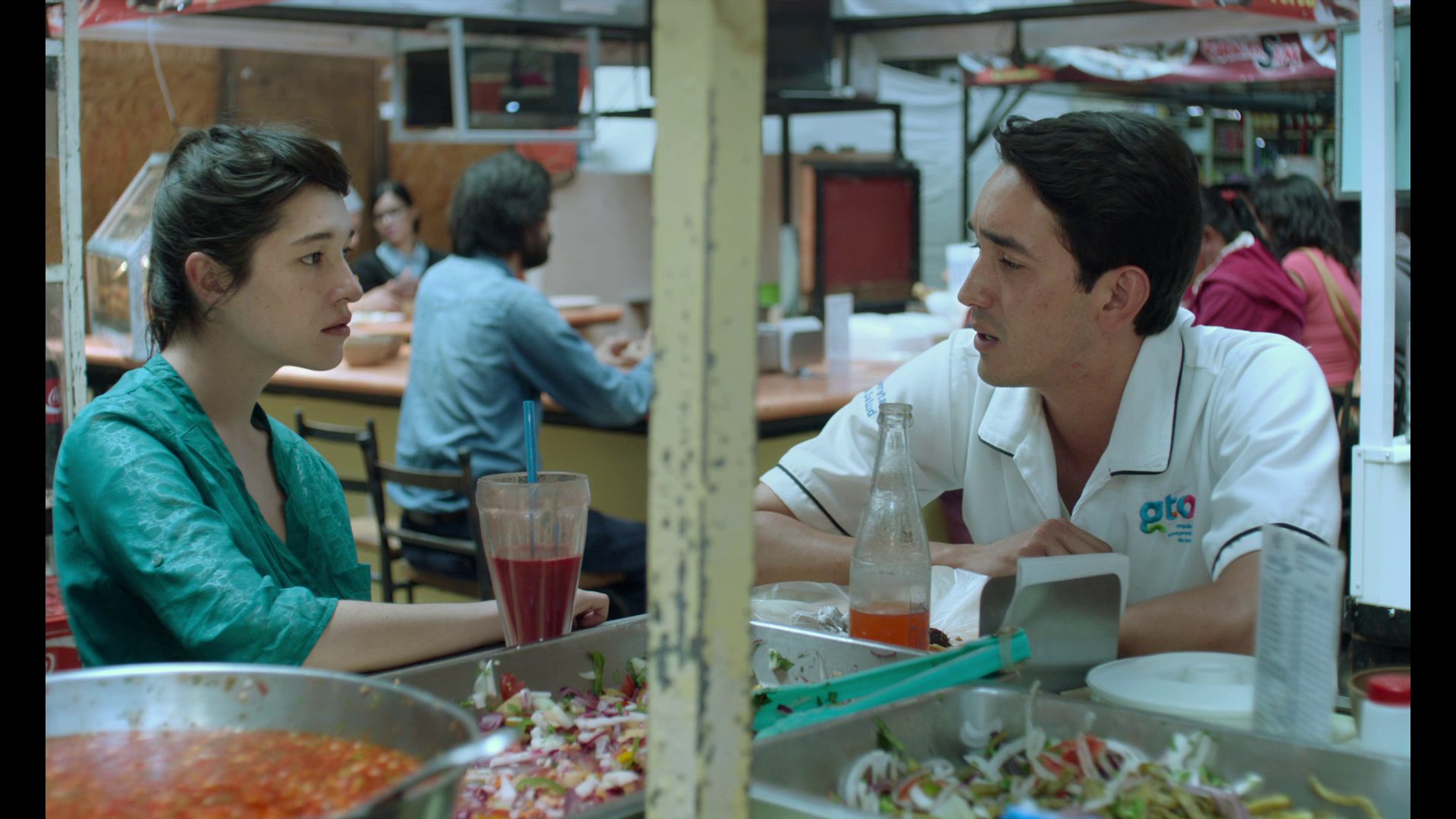 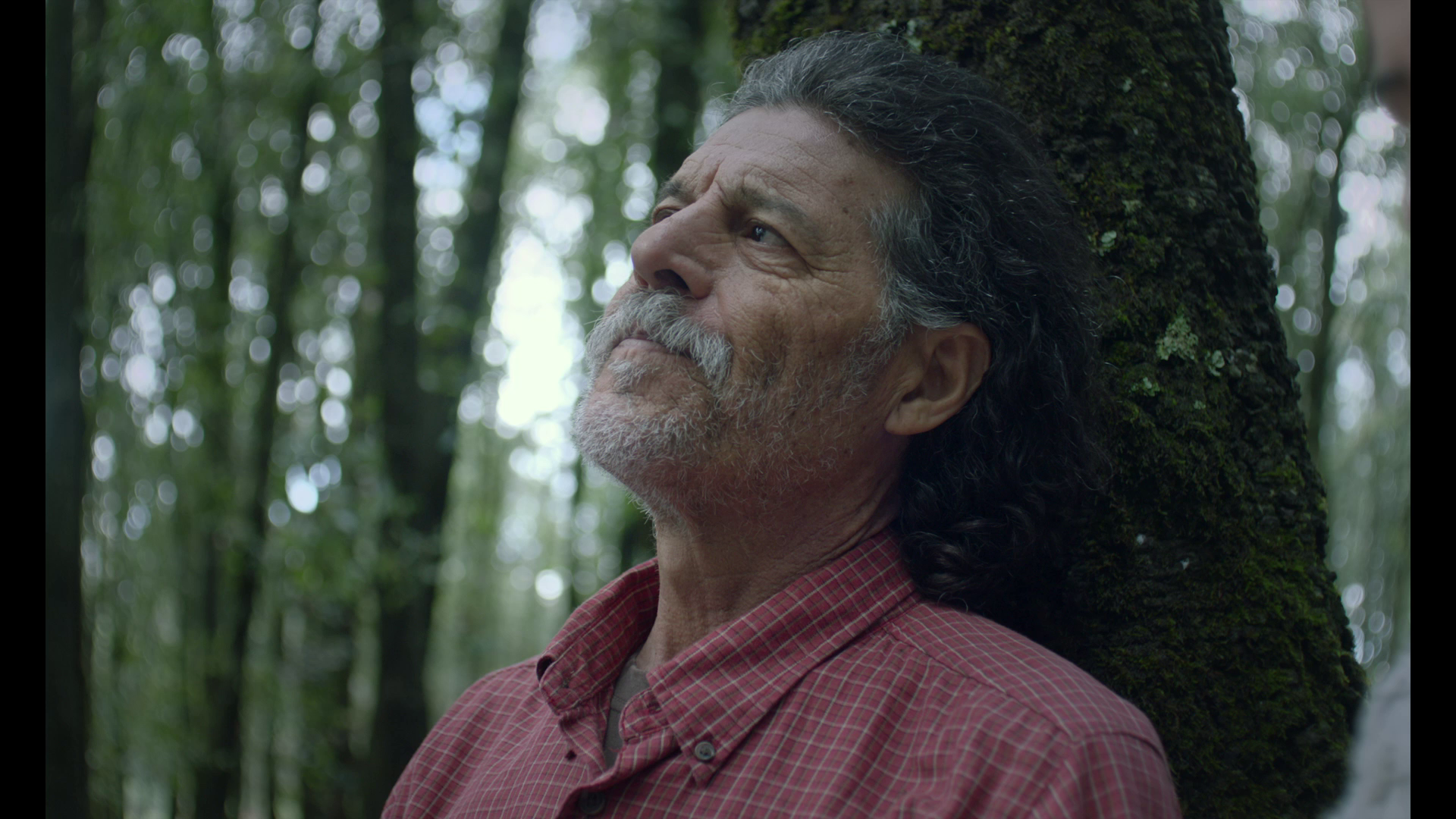
Audio
Audio is presented in Mexican Spanish, with some minor dialogue in English, via a DTS-HD MA 5.1 track. This is rich and demonstrates a strong amount of depth and resonance, the sound separation used effectively in the scenes which feature music and the rear channels employed to suggest the movement of the largely unseen alien creature in the scenes set in the log cabin. Optional English subtitles are provided; these cover the non-English language dialogue only and are easy to read.
Extras
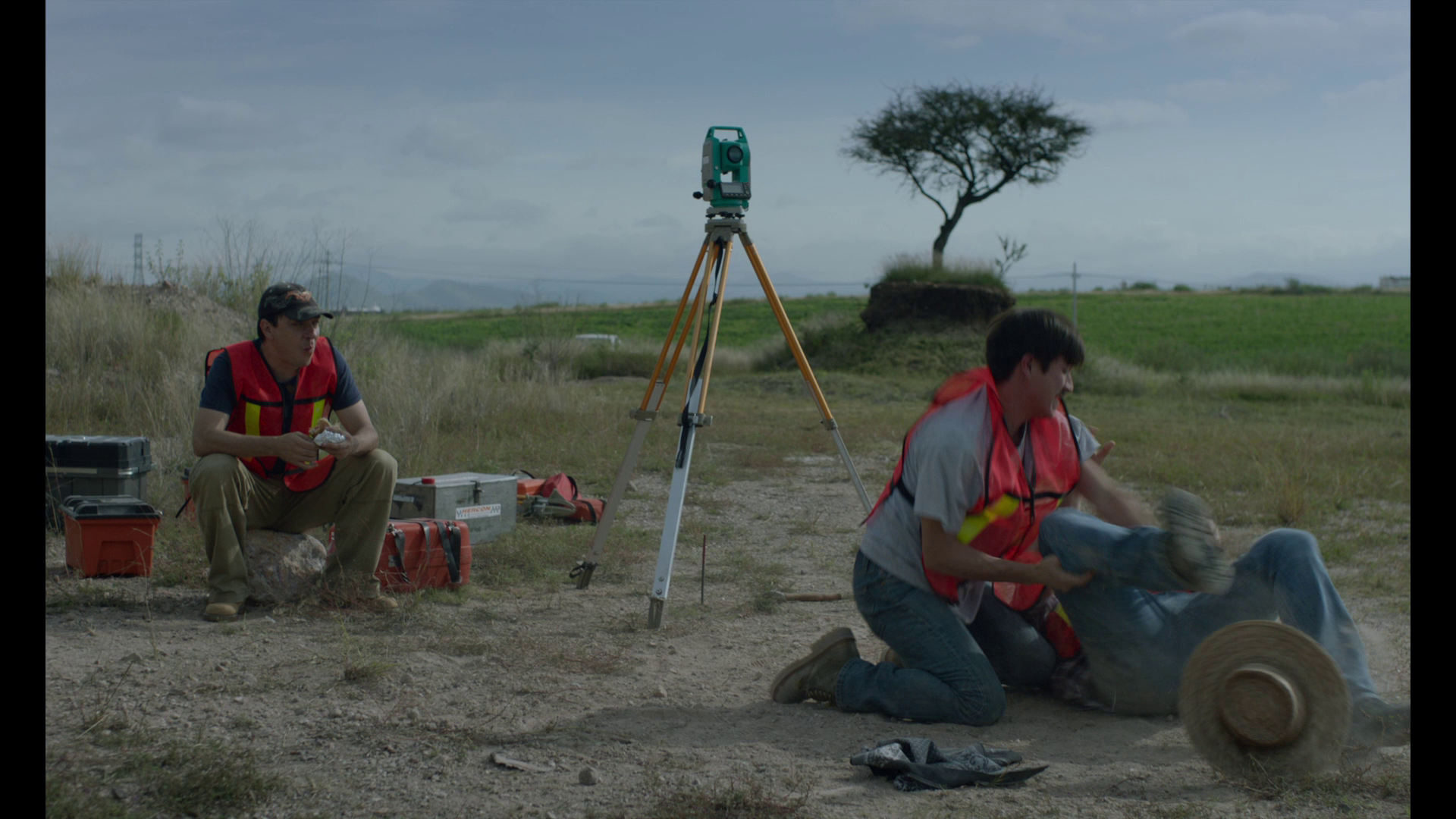 Supplementing the main feature, the disc includes: Supplementing the main feature, the disc includes:
- ‘The Making of The Untamed’ (84:05). This indepth documentary by Martin Escalante covers the film’s production, being comprised of some fascinating behind the scenes footage of the shooting of the picture, glimpses of the sound recording/music recording sessions, and some interesting footage showing the effects work in the scenes that feature the alien ‘monster’. The documentary is in Spanish, with burnt-in English subtitles. - ‘Amarrados’ (15:56). Escalante’s bleak 2002 short film, shot in black-and-white, is presented in its intended screen ratio of 1.33:1. It’s a disturbing story of sexual abuse directed towards a homeless boy. Again, this is in Spanish, with burnt-in English subtitles. - The film’s trailer (1:48).
Overall
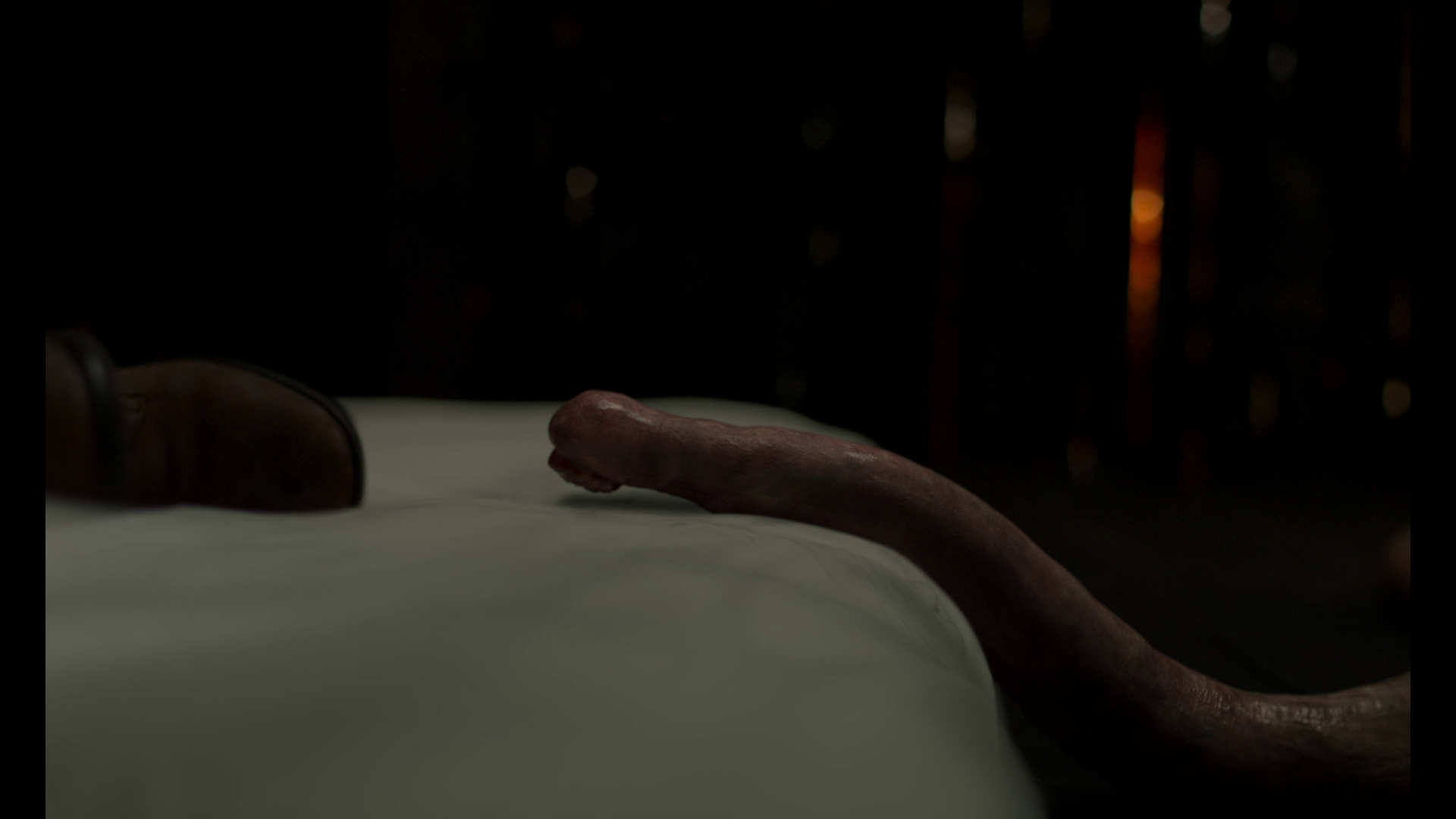 The Untamed is intense and unsettling, like Escalante’s previous films. The juxtaposition of social realism and the more fantastical elements involving the alien might seem jarring to some viewers, but it’s handled very well by the cast and crew. It’s a grim picture, though there are some moments of humour. In one sequence, after Ale has discovered the truth about Angel’s relationship with her brother, she and one of her sons watch what appears to be an Italian zombie film (perhaps Lamberto Bava’s Demoni 2) on the television; Ale weeps quietly, upset over Angel’s betrayal, but her young son believes her tears are owing to the film. ‘Don’t worry, mummy’, he says, ‘zombies don’t really exist. Later, after the Vegas tell Ale about the discovery of the alien, Escalante presents the film’s audience with a shot that slowly tracks into the crater which we may presume was made by the impact of the object which hit the earth, and inside the crater we see all manner of animals copulating voraciously. It’s a disconcerting, but also dryly comic, shot. The Untamed is intense and unsettling, like Escalante’s previous films. The juxtaposition of social realism and the more fantastical elements involving the alien might seem jarring to some viewers, but it’s handled very well by the cast and crew. It’s a grim picture, though there are some moments of humour. In one sequence, after Ale has discovered the truth about Angel’s relationship with her brother, she and one of her sons watch what appears to be an Italian zombie film (perhaps Lamberto Bava’s Demoni 2) on the television; Ale weeps quietly, upset over Angel’s betrayal, but her young son believes her tears are owing to the film. ‘Don’t worry, mummy’, he says, ‘zombies don’t really exist. Later, after the Vegas tell Ale about the discovery of the alien, Escalante presents the film’s audience with a shot that slowly tracks into the crater which we may presume was made by the impact of the object which hit the earth, and inside the crater we see all manner of animals copulating voraciously. It’s a disconcerting, but also dryly comic, shot.
The Untamed features some impressive photography and very strong sound design. The effects sequences featuring the alien are also very well-handled and genuinely disturbing. Arrow’s Blu-ray release contains an excellent presentation of the main feature and is accompanied by some very good contextual material. The extremely thorough documentary about the production is fascinating (as someone who has had experience of directing short films myself, the behind the scenes shots of the crew setting up shots and retaking them seem all too familiar), and the inclusion of Escalante’s traumatising 2002 short picture ‘Amarrados’ is extremely welcome. References: Aguilar, Carlos, 2014: ‘LatinoBuzz: Amat Escalante, 'Heli' and Cinema as a Cathartic Medium’. [Online.] http://blogs.indiewire.com/sydneylevine/interview-amat-escalante-on-his-film-heli-mexico-foreign-language-oscar-submissions-international-film-business Christie, Tom, 2014: ‘Mexican Director Amat Escalante Talks Violent Love Story 'Heli,' Out Now in Select Cities’. [Online.] http://blogs.indiewire.com/thompsononhollywood/cannes-interview-mexican-director-amat-escalante-talks-violent-love-story-heli Director Talk, 2014: ‘Heli/Amat Escalante’. [Online.] http://earthwize.org/wordpress/directortalk/2014/06/17/heliamat-escalante/ Escalante, Amat, 2012: ‘Sight & Sound: The Greatest Films Poll’. [Online.] http://explore.bfi.org.uk/sightandsoundpolls/2012/voter/859 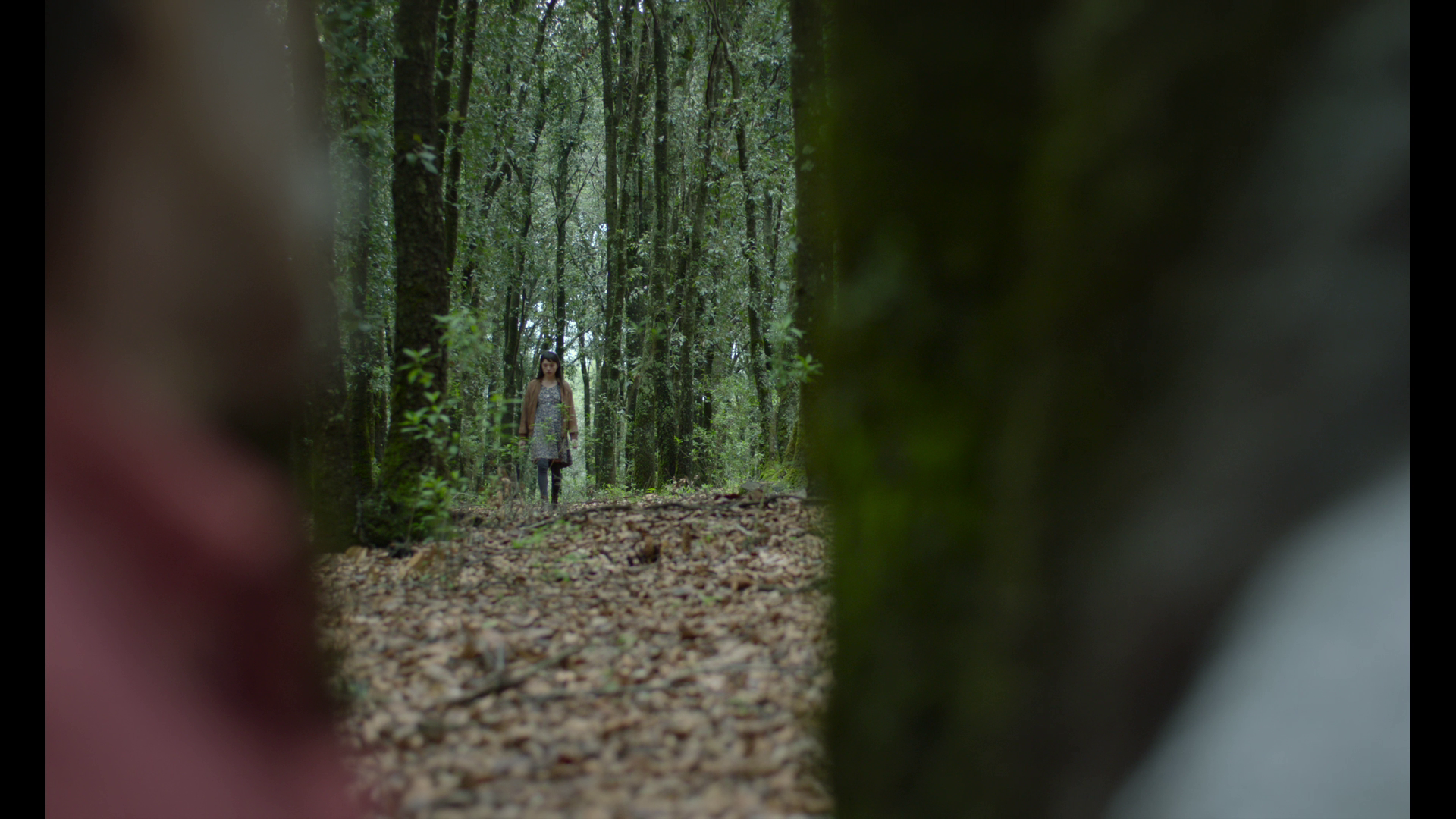
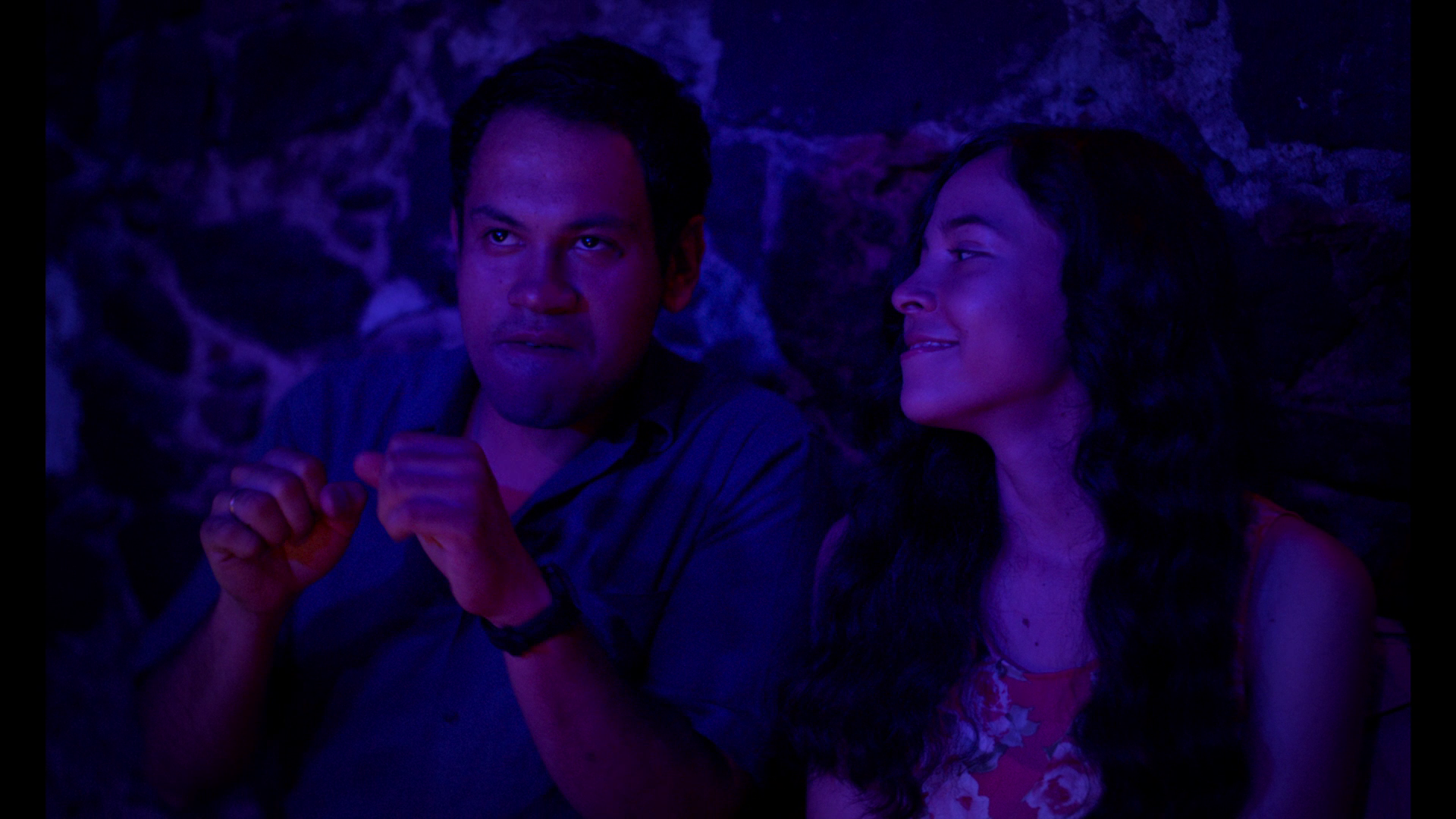
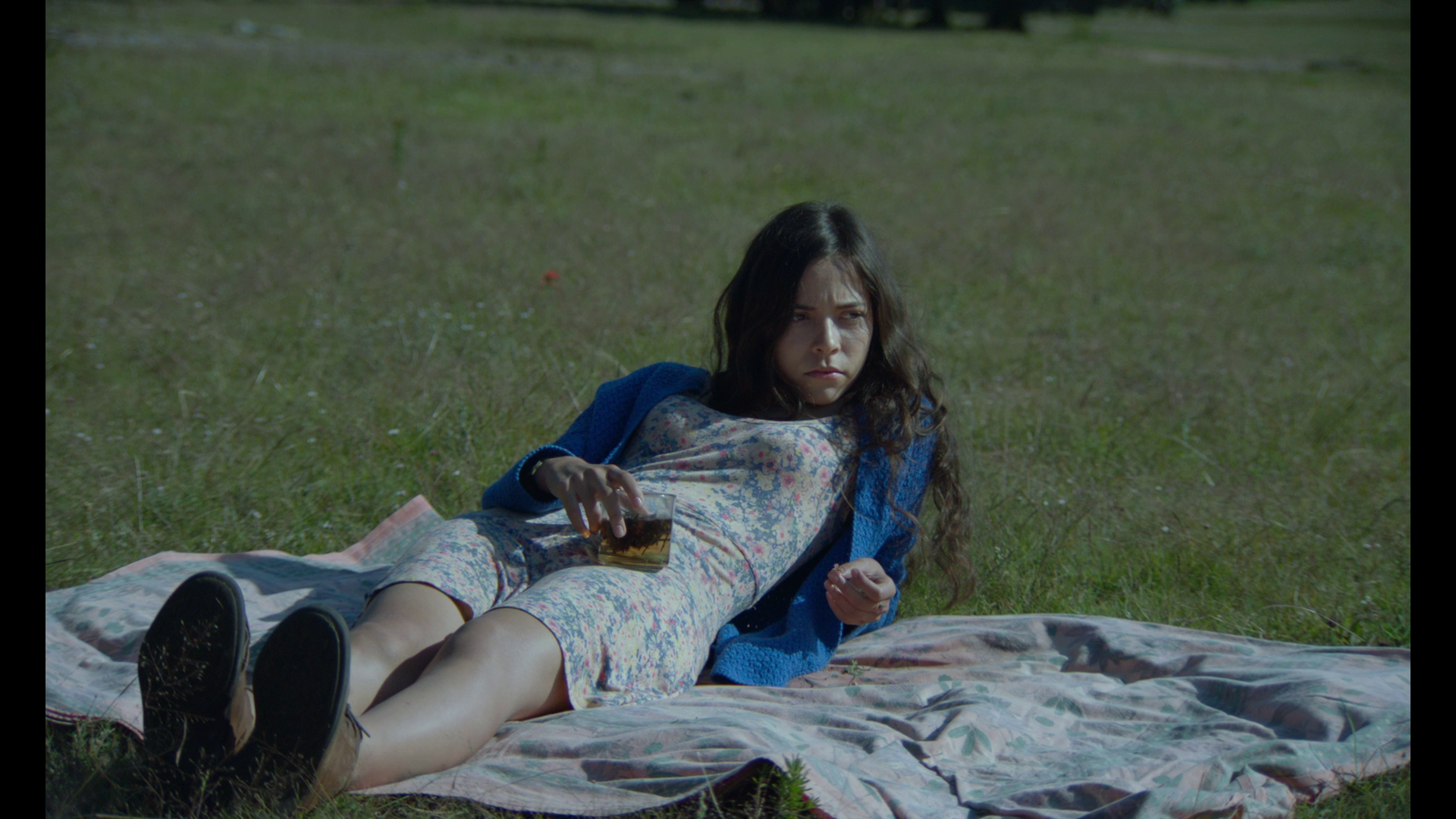
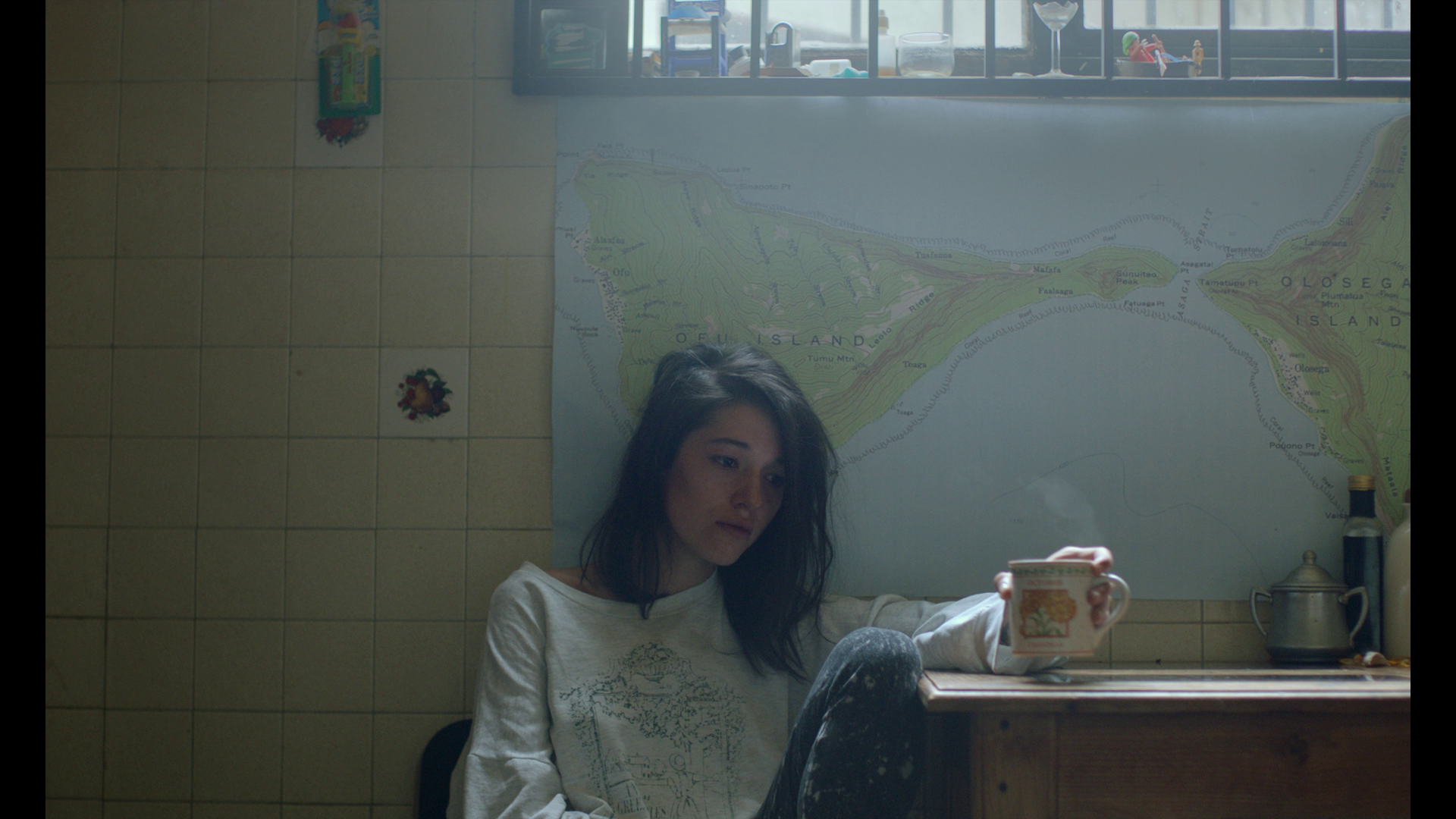
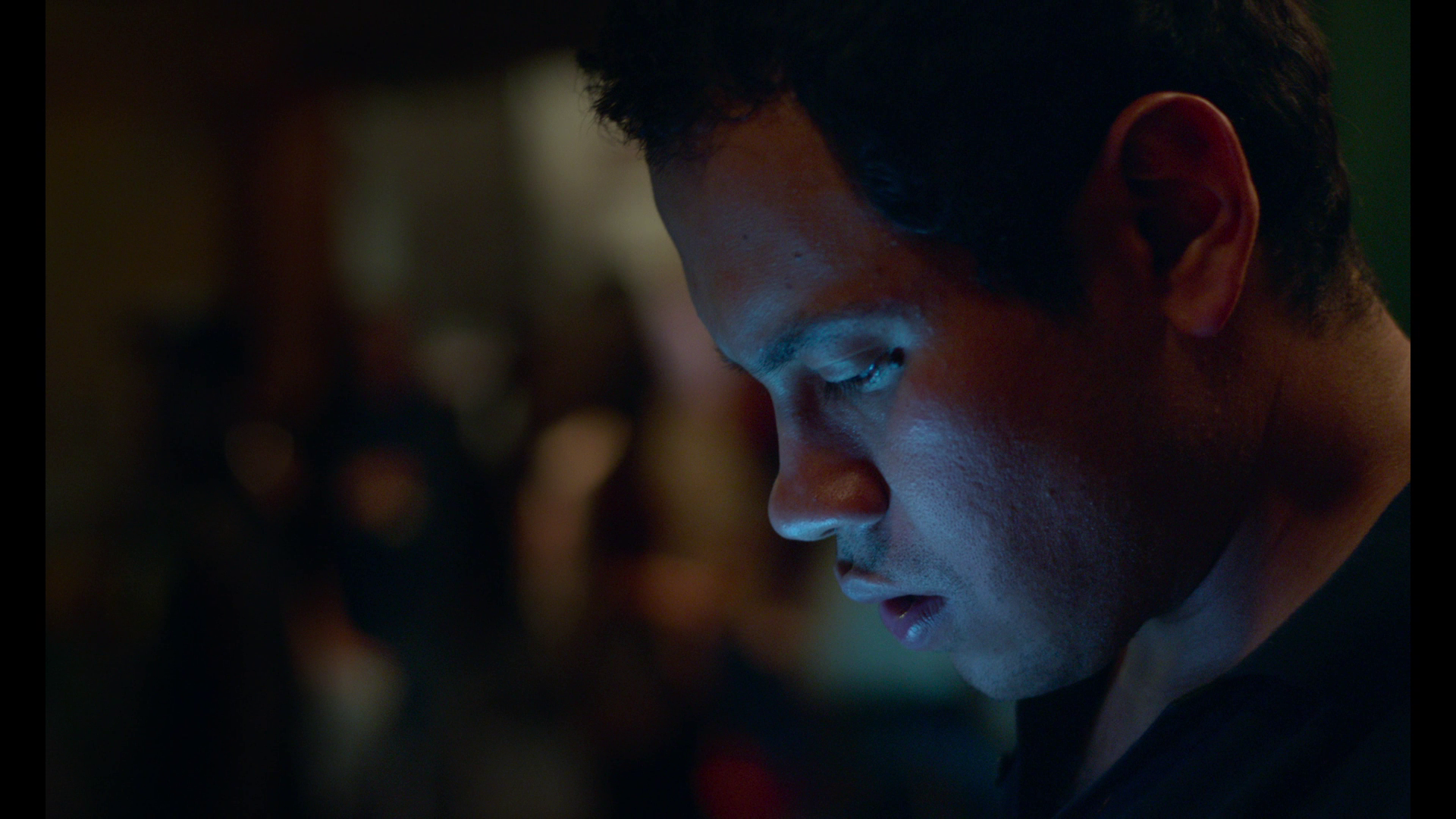
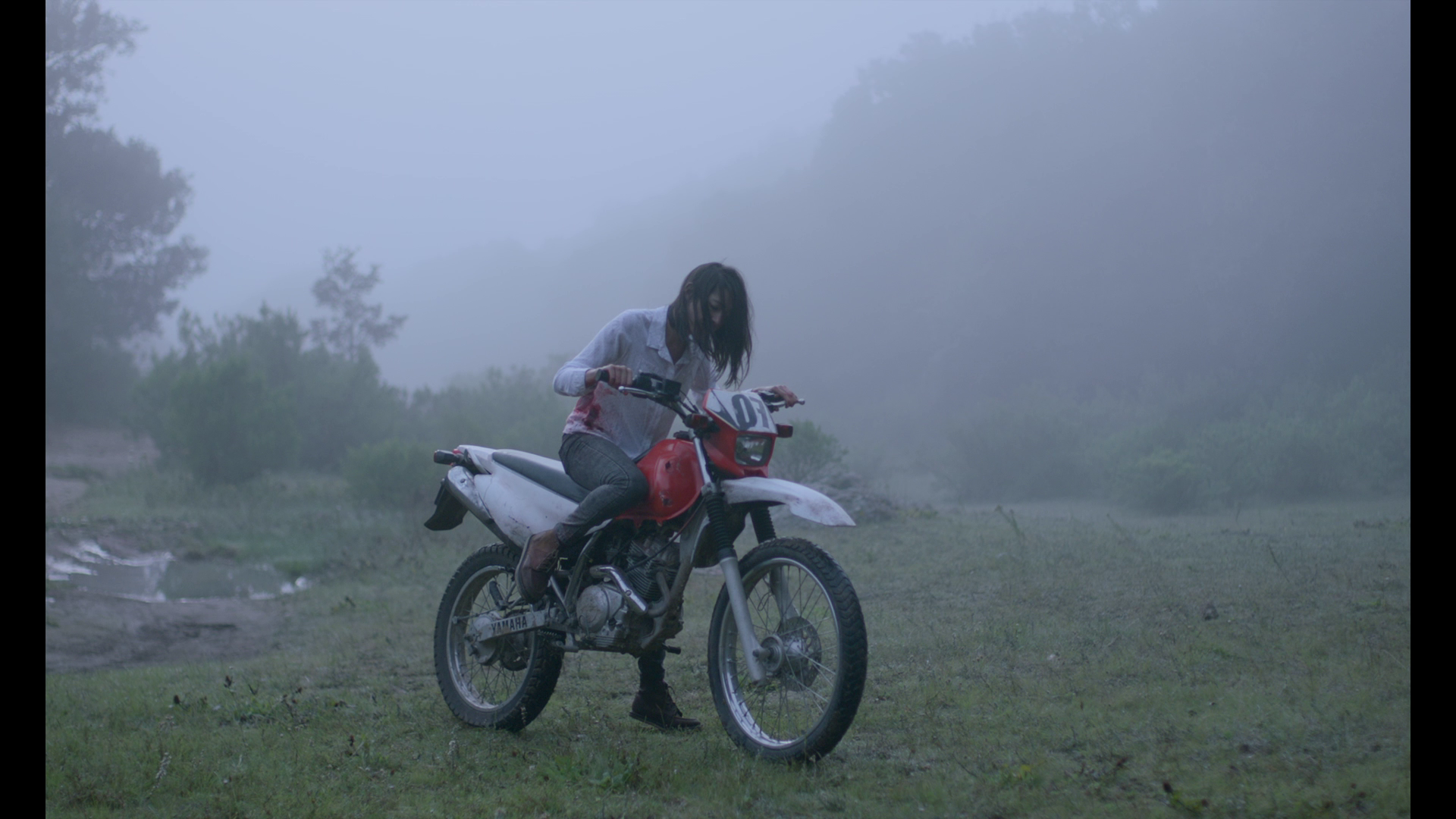
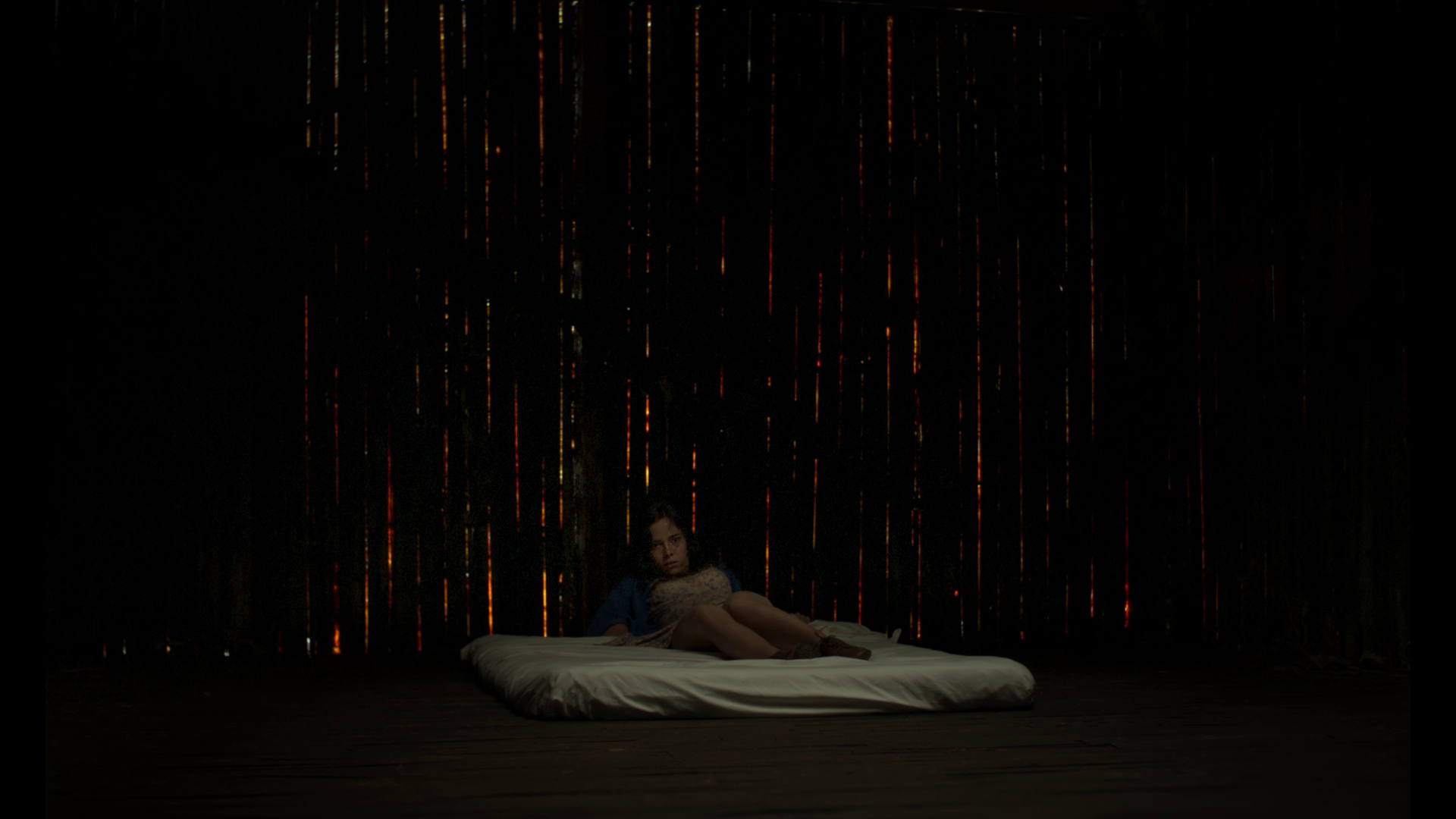
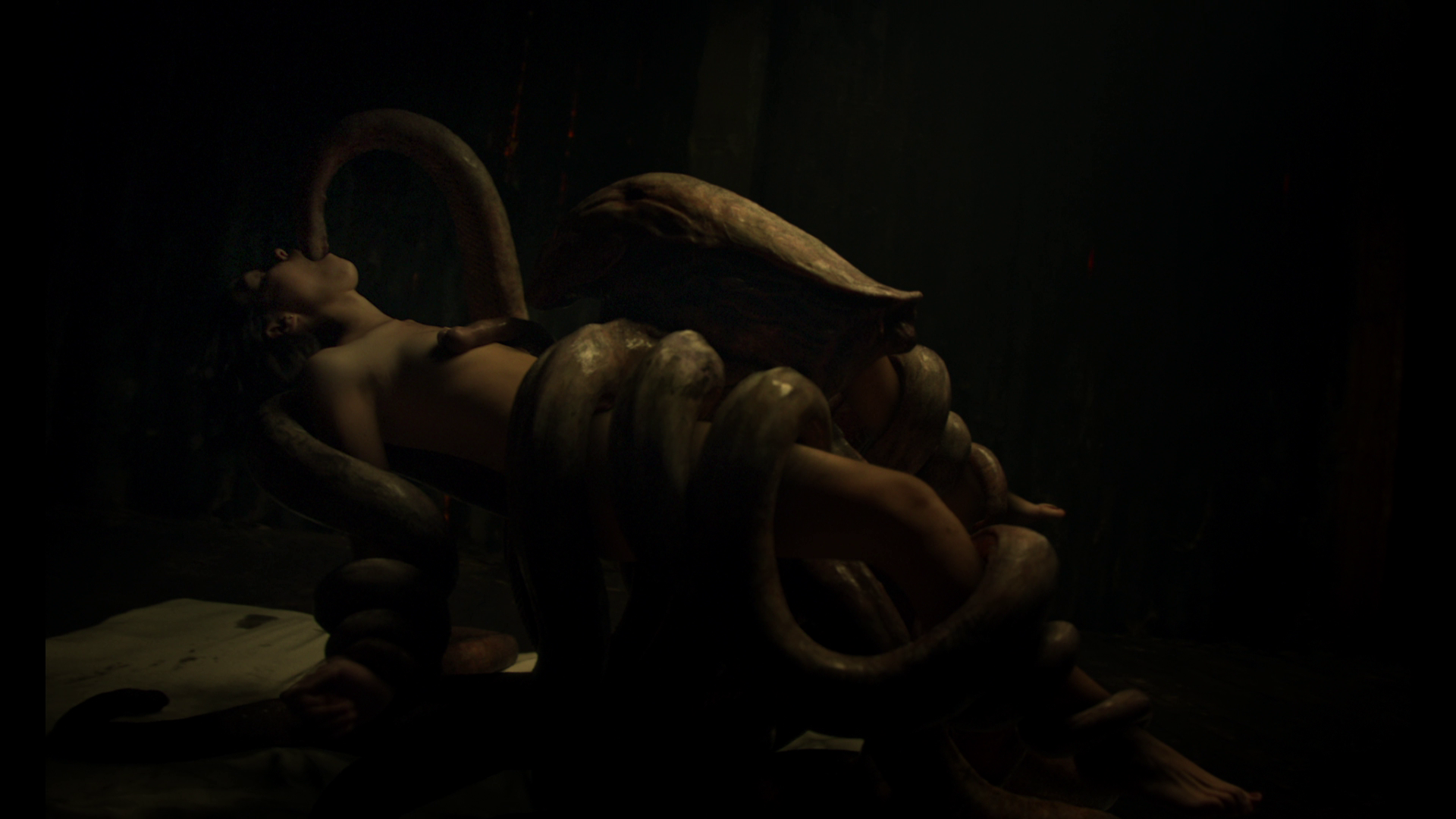
|
|||||

|